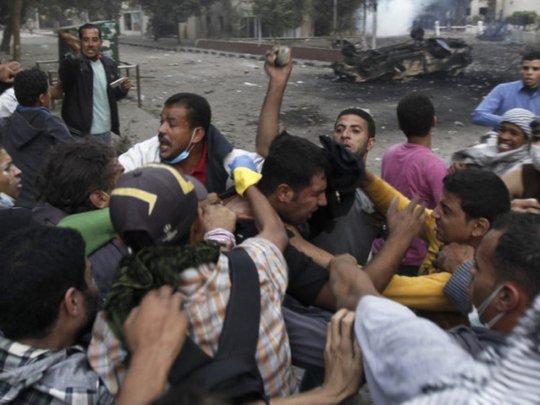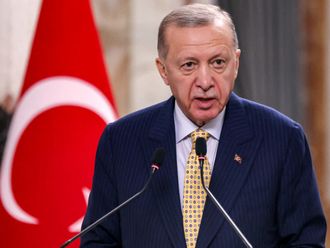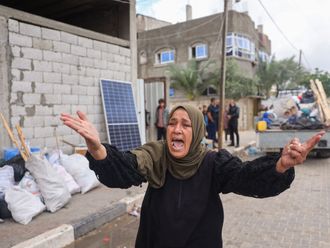
Cairo: With a widening political chasm between the powerful Islamists and the secular-minded opposition, Egypt is heading for further turmoil set to hamper the country’s democratic transition in 2013, predict analysts.
“I expect these divisions to spill over into the next year, diminishing prospects for political stability,” said Mustafa Kamel al-Sayyed, a professor of political science at Cairo University. Still, he rules out this turmoil will develop into an all-out chaos.
“Clashes may flare up every now and then. But it will not grow to the level of civil war as happened in Lebanon and Iraq. In Egypt, the problem is related to political divisions. In Iraq and Lebanon, it was linked to social and ideological splits,” he told Gulf News.
Yet, he thinks it is unlikely that a common ground will be reached between the ruling Muslim Brotherhood and their Salafist allies on the one hand and secularists on the other.
An uprising that toppled Hosni Mubarak almost two years ago propelled long-suppressed Islamists on the country’s political stage. They gained a clear majority in the first post-Mubarak parliamentary elections held in late 2011. The legislature was dissolved months later for having been elected on unconstitutional rules.
“Islamists will most probably win a large number of seats in the upcoming parliamentary elections. However, their gains will not be as sweeping as those of the past polls,” said al-Sayyed.
No date has been set for the new elections.
A violent crisis, sparked last month by the Islamist president’s decree broadening his powers, raised fears in Egypt about a possible military coup or the army’s return to power in another form. To al-Sayyed, this is unlikely to happen.
“During the crisis, the army was keen to make its presence felt as it warned of the dire consequences of the dispute between the opposition and the president,” said al-Sayyed. “But I cannot imagine the Armed Forces’ return to power. Their role will not exceed prodding the disputing factions to seek a compromise.”
The army ruled Egypt for six decades from the early 1950s until June 2012 when it handed over power to Mursi.
As Egypt plunged into a crisis over Mursi’s power grab, the army warned of what it called the “catastrophic results” should the deadlock drag on. “Dialogue is the best and only method to reach concurrence fulfilling the interests of the nation and citizens. The opposite of this is to lead us into a dark tunnel… And we will not allow this matter,” added the military.
With Isalmists and secularists locked in irreconcilable differences, Egypt’s shift to democratization looks at stake. “Electing a new People’s Assembly (the legislature) will not mean obtaining political stability,” said Salah al-Hadi, a political expert. “Islamists is likely to dominate the new legislature and enact laws unacceptable to secularists and liberals. A lack of political maturity on the part of Islamists and liberals’ perceived haughtiness mean that the country will continue to be plagued by turmoil that may well degenerate into street violence,” he said.
“Many revolutionary youth meanwhile feel angry that their revolution (against Mubarak) has been hijacked by Islamists or failed to achieve its goals. This anger will show itself on the streets.”











